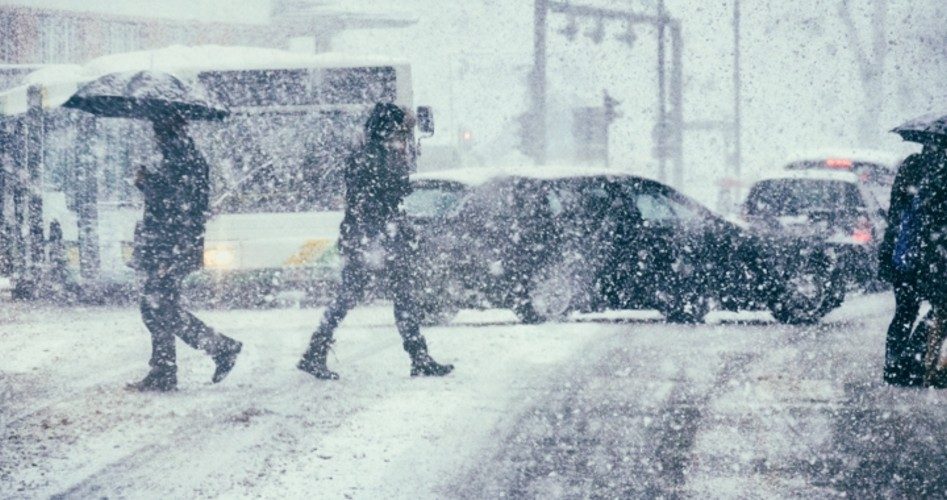
As the residents of the Northeastern United States clean up from yet another nor’easter, word comes from meteorologists that another one may be on the way, possibly to hit on the first day of spring. According to some highly educated climate alarmists, the culprit is — say it with me — global warming.
The latest study, suggesting that a warmer Arctic region contributes to colder, fiercer winters in the United States, comes to us from Rutgers University. It was published in late January in the scientific journal Nature Communications.
But I thought you couldn’t relate short-term weather to long-term climate trends. Isn’t that what scientists are always telling us?
“Basically, this confirms the story I’ve been telling for a couple of years now,” said co-author of the study Dr. Jennifer Francis, an atmospheric scientist at Rutgers. “Warm temperatures in the Arctic cause the jet stream to take these wild swings, and when it swings farther south, that causes cold air to reach farther south. These swings tend to hang around for a while, so the weather we have in the United States, whether it’s cold or warm, tends to stay with us longer.”
First, it’s telling that Dr. Francis refers to her research as a “story.” But beyond that, the study’s observations show a correlation between warmer Arctic temperatures and colder winters in the northeastern United States. Ok, fine. But the study itself points out that this may be coincidental; not causal.
From the study: “Based on observations and correlations alone, we cannot offer physical mechanisms for the relationships we demonstrate.” So, give the authors of the study some credit for their honesty. The authors further state that, “Another challenge is that the observational record during rapid Arctic change is short, which makes the demonstration of statistical significance difficult.”
In other words, they believe they see something linking a warm Arctic to a cold United States, but they really don’t know enough to make the conclusions they’re making. The observational record is too short to come to a full and proper conclusion.
“Exactly how much the Arctic contributed to the severity of the pattern is still hard to pin down,” Francis admits. “But it’s becoming very difficult to believe they are unrelated.”
The authors of the Rutgers study aren’t the only ones who believe that a warmer Arctic plays a role in cold winters in more temperate areas but can’t produce an answer as to why. Marlene Kretscher, a researcher at the Potsdam Institute for Climate Impact Research, in referencing cold European winters, said, “There’s a lot of agreement that the Arctic plays a role; it’s just not known exactly how much. We’re trying to understand these dynamic processes that lead to cold winters.”
It should be noted that there are many people of science who disagree with the Rutgers study. Earlier this year, Kevin Trenberth, a scientist at the National Center for Atmospheric Research, said simply, “Winter storms are a manifestation of winter; not climate change.”
“Such claims make no sense and are inconsistent with observations and the best science,” says University of Washington climatologist Cliff Mass. “The frequency of cold waves have decreased during the past fifty years, not increased.”
It sounds like Drs.Trenberth and Mass are saying that weather is not the same as climate — or something like that.
While the frequency of nor’easter storms this winter is higher than normal, it is nowhere close to the highest it’s ever been. Meteorologist Joe Bastardi pointed out in a March 10 tweet, “The nor’easters are being blamed on climate change. 3 in 10 days, well how about 3 in 6 days! In 1966.”
Observations such as those in the Rutgers study are important and can be a key to understanding the world around us. But observation alone does not show causal effect, and scientists must be careful about coming to conclusions based on incomplete data. Certainly, courses of political action shouldn’t be based on such incomplete evidence.
Our climate might be the most complicated system on this planet God has given us. Everything on Earth (including man) seems to have a role in how it works. We are only in the beginning stages of understanding the climate, and we need to understand it more fully before attempting to fool with it.
Image: MATJAZ SLANIC via iStock / Getty Images Plus




